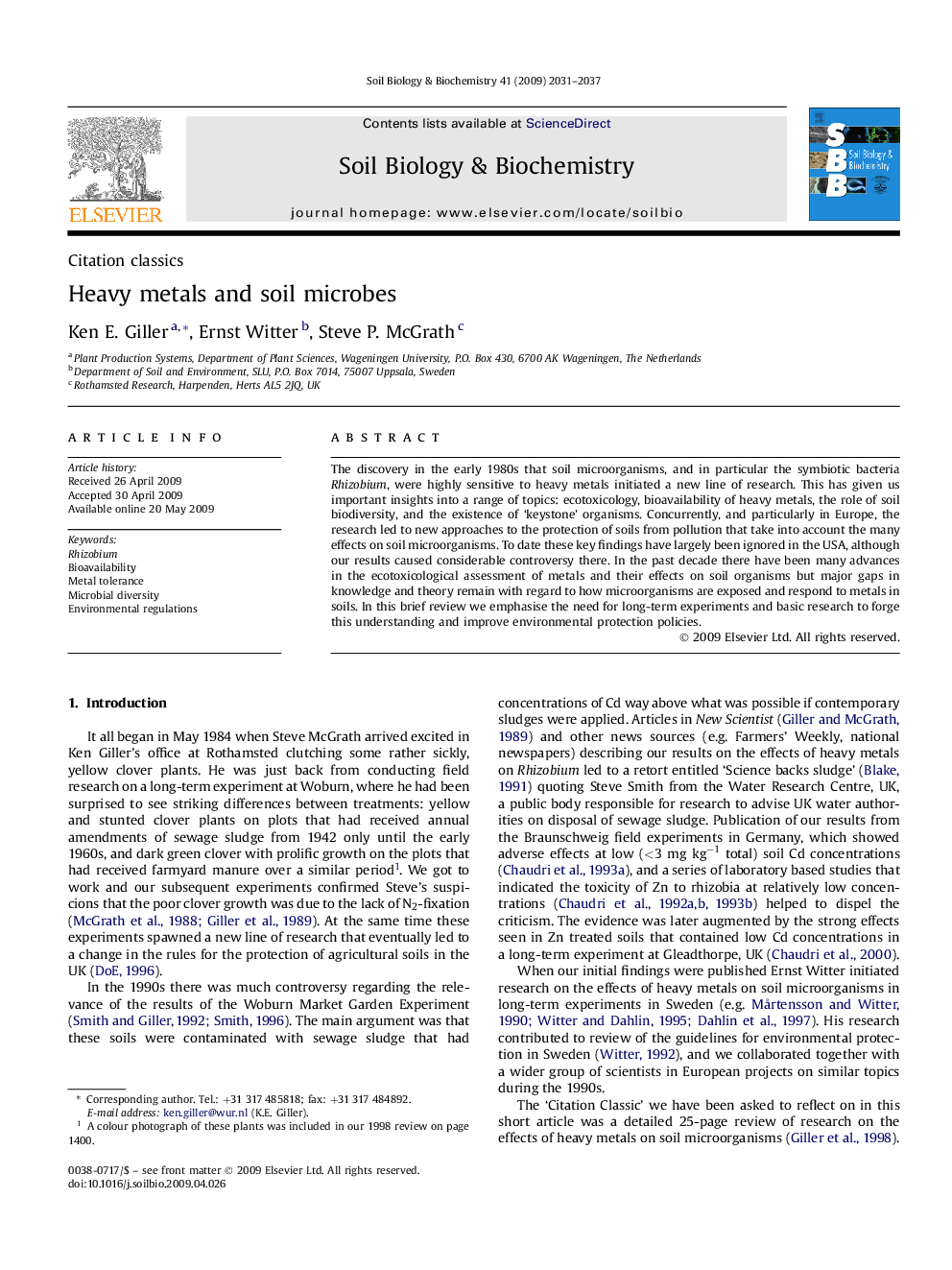| Article ID | Journal | Published Year | Pages | File Type |
|---|---|---|---|---|
| 2025965 | Soil Biology and Biochemistry | 2009 | 7 Pages |
The discovery in the early 1980s that soil microorganisms, and in particular the symbiotic bacteria Rhizobium, were highly sensitive to heavy metals initiated a new line of research. This has given us important insights into a range of topics: ecotoxicology, bioavailability of heavy metals, the role of soil biodiversity, and the existence of ‘keystone’ organisms. Concurrently, and particularly in Europe, the research led to new approaches to the protection of soils from pollution that take into account the many effects on soil microorganisms. To date these key findings have largely been ignored in the USA, although our results caused considerable controversy there. In the past decade there have been many advances in the ecotoxicological assessment of metals and their effects on soil organisms but major gaps in knowledge and theory remain with regard to how microorganisms are exposed and respond to metals in soils. In this brief review we emphasise the need for long-term experiments and basic research to forge this understanding and improve environmental protection policies.
